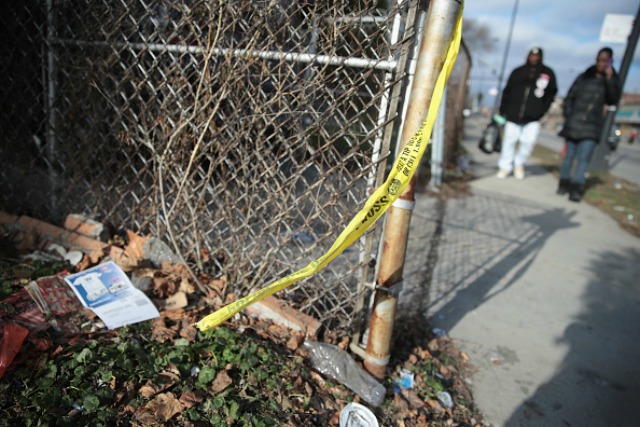Will Tougher Sentencing Really Stop Chicago's Violent Crime Epidemic?
By Stephen Gossett in News on Dec 29, 2016 6:18PM

Getty Images / Photo: Scott Olson
Chicago will soon turn the calendar on a staggeringly violent year, with more than 770 homicides compared to 468 in 2015. As the violence has persisted, CPD Superintendent Eddie Johnson has routinely called for tougher sentencing, claiming that police are making the necessary arrests, but prison terms are too soft.
But a professor of criminology at UIC argues that such a method not only wouldn’t fix the problem, but it could compound it, by exacerbating the root problem: hopelessness among young black men in underserved communities.
John Hagedorn, who’s studied extensively on global homicide patterns and Chicago gang culture, told Chicagoist that “the idea that mass incarceration is a solution to violence never really seems to work.”
“What we know about violence today, it’s spontaneous and situational. It’s not just a few sick people,” Hagedorn said, referring to targeted police approaches. “It’s the product of hopelessness.”
The affected communities must be stabilized and invested in, Hagedorn said. Unlike in New York City, homicide rates in Chicago failed to fall in the ‘90s because here the city “sent police into the projects” whereas New York “embarked on a massive public housing effort,” his studies determined. Gangs were scattered by the destruction of public housing in Chicago; leaders had no control over the newly fragmented gangs; and that volatility has increased over the last two years, he said.
Race is also a key factor: “If gangs were the problem then you’d have as many Latino homicide offenders and victims as you do African American,” he said. He mentioned school closings in predominantly black neighborhoods as a factor that contributes to feelings of hopelessness, which leads young men toward gangs.
The UNODC’s Global Study on Homicides found that murder levels are directly related to lack of development, and large jumps or declines in that rate are the result of gang wars. “With the black homicide of the last two years—a different kind of gang war—both criteria apply directly to Chicago,” he said.
Comparing violent crime in Chicago to cities like New York and Los Angeles also misses the point, Hagedorn said. "Chicago reverted to Midwest mean: we're not quite as high as Detroit or St. Louis; and Milwaukee had higher homicide rates last year." Chicago's rate of roughly 25 homicides per 100,000 people falls more or less in line with other cities in the region, he said.
"These places have not figured out how to provide for communities that need it most," he added.